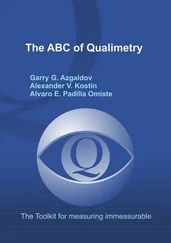“Football,” said Mr. Molofololo. “Or you can call it soccer, if you like. The beautiful game. You know that it is called that, Mma? That is what they call football.”
Mma Ramotswe did not know that. She had never been to a football match, although she had seen boys, including Puso, playing it and had watched for a few minutes here and there. Was it beautiful? She supposed that it was-in a manner of speaking. They were always very skilful, those soccer players, as the nicknames they often bore revealed. She had seen these mentioned recently in the newspaper, when a football player called Fast-Dancer Galeboe had been pictured at a function talking to another player called High-Jump Boseja. Those nicknames at least gave some indication of the talents of the player in question; others seemed less obvious. She had read about Joel “Twelve Volts” Koko of the Township Rollers, and Sekhana “Fried Chicken” Molwantwa of the Extension Gunners. She could not imagine why Mr. Koko should be called Twelve Volts, although she could presume that Mr. Molwantwa had a taste for fried chicken. Perhaps the whole thing was to do with the way men got on with one another; they often laughed and slapped each other on the back or pretended to kick one another. Perhaps it was to do with all that.
“I am afraid that I do not know much about football, Rra,” Mma Ramotswe said. “But I can understand why it should be called the beautiful game-with all that running around and dodging in and out. That might be called beautiful, I suppose.”
“I have never understood the attraction myself,” chipped in Mma Makutsi. “Why make such a fuss about kicking a ball up and down a field?”
Mr. Molofololo appeared to take this in good humour. “It is because you ladies are women,” he said. “It is not something that women understand.” He paused, and then added hurriedly, “Of course there are many things that men do not understand. They do not understand some of the things that women understand. Such as…” He trailed off.
“Yes, Rra?” prompted Mma Ramotswe.
Mr. Molofololo waved a hand in the air. “There are many things. Women's business. Shoes maybe. That sort of thing.”
Mma Ramotswe and Mma Makutsi exchanged glances. He is right, thought Mma Ramotswe; men do not understand shoes- not completely, not in the deep way in which women understand them. For men, shoes were simply things you put on your feet; for women, shoes were… well, there was no time to go into that.
Mr. Molofololo moved on. “Perhaps it would be best, Mma, if I told you a little bit about myself. Then you will understand why this problem that I have come to see you about is such a big one.” He paused, and put a hand over his heart. Mma Ramotswe noticed the starched cuff of his shirt and the heavy gold cuff-links. It was a strange thing about rich men, she reflected. If they have made the money themselves, then they are usually keen to let you know just how much money they have; if they had got it from their father, or even their grandfather, then they often never mentioned it. Mr. Molofololo had obviously made his money himself.
“This problem,” he went on, “hurts me here. Right here-in my heart.”
Mma Ramotswe inclined her head gravely. Everybody who consulted her was, in their way, hurting-even this rich man with his big Mercedes-Benz and his expensive cuff-links. Human hurt was like lightning; it did not choose its targets, but struck, with rough equality and little regard to position, achievement, or moral desert.
“I have worked very hard, Mma Ramotswe,” Mr. Molofololo went on. “Ever since I was a small boy I have worked. I herded cattle, you know, the same as all small boys from the villages. We were poor people, you understand. And then I went to school and I worked harder than any of the other boys. When the other boys were playing football, I studied and studied. Then when the school principal asked me what I wanted to be, I said that I would be an accountant. I had read somewhere about CAs, and I said, I will be a CA one day. And that is what I now am. I am a chartered accountant, but I am also a businessman. I have many shops. Here. There. Many shops.”
Mma Ramotswe noticed that Mma Makutsi was listening intently to this, and she knew why. Her assistant had worked her way out of poverty, and had achieved ninety-seven per cent in the final examinations of the Botswana Secretarial College by dint of sheer, unremitting hard work. If Mma Makutsi identified with Mr. Molofololo's story, it was because it was her story too, except for the herding, and the football, the chartered accountancy, and the shops-except for all the details, in fact.
“But you know how it is, Mma,” Mr. Molofololo continued. “When you are a success in business, you begin to think of the things that you've missed while you were working so hard. That is why you hear people say: I have been working, working, working, and now my children are grown up and I did not see that happen. Have you heard people say that, Mma?”
Mma Ramotswe had not, but she could imagine that people might indeed say it, so she nodded.
Mr. Molofololo leaned back in his chair. “And do you know what I thought, Mma Ramotswe? I will tell you. I thought: I never played football, and now it is too late. That is what I thought. You can't have a man in his fifties running round the football field, can you? His heart will say no. So it was too late.”
He paused, and then, with the air of one making an important announcement, he said, “But if it was too late to play football myself, it was not too late to buy a football team, Mma. Hah! So I bought a team that had not been doing very well-a nothing, useless team-and I got rid of all those lazy players and put in new ones who wanted to score lots of goals. And that's how the Kalahari Swoopers were born. Now you see us right up there, up at the top of the league most of the time, or number two at least. Until recently, that is. I did that. I did all that myself.”
Mma Makutsi had been silent. But now she asked, “You did that yourself, Rra? You played after all?”
Mr. Molofololo ignored the question at first, but then gave an answer. “No, not me, Mma. I am the owner. The football is played by the football players. And we have a coach, a very good one. He tells the men what tactics will work best.”
“You must be very proud of your team, Rra,” said Mma Ramotswe. “Even I have heard of it. And I am just a woman.”
Mr. Molofololo did not notice the irony. “Well, there you are,” he said. “That goes to show, doesn't it?”
Mma Ramotswe knew that if she did not say something, Mma Makutsi would say, “Goes to show what?” So she asked him how his team was doing. Why were they no longer at the top of the league?
It was the right question to ask, as it was this, he explained, that had brought him to see her. “Something has gone badly wrong,” he said. “A few months ago we started to lose a lot of games. At first I thought that it was just a little spell of bad luck; one cannot win every time, I suppose. But then it continued, and we are now going further and further down the league table. People are laughing at us. They say, Look at the Swoopers. They cannot swoop. No more swooping there. It is very painful, Mma, and I feel very ashamed of my team.”
“That is very sad,” said Mma Ramotswe. “To build something up and then see it be destroyed is not a very nice experience, I think.”
He was grateful for the sympathy. “Thank you, Mma. I'm sure that you can imagine what it would be like to see your own business suddenly go downhill. Imagine it. You solve all those cases and then suddenly there are no more solutions. It would not feel good, would it?”
Mma Ramotswe was tactful. “There are always reversals in business. It is not the fault of the people running the businesses- or, at least, it's not always their fault.”
Читать дальше











